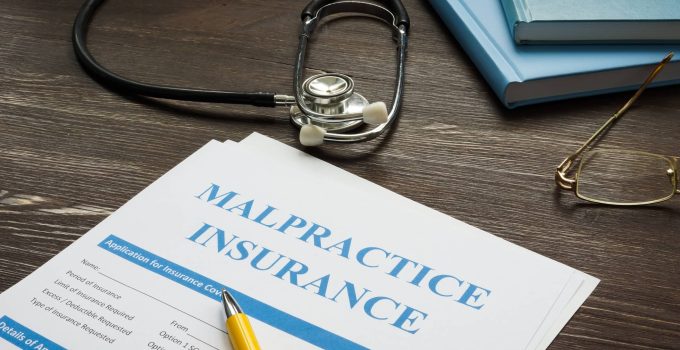In the ever-evolving field of psychiatry, professionals are dedicated to providing mental health care and support to individuals in need. While their primary focus is on the well-being of their patients, it’s essential for psychiatrists to safeguard their own interests as well. One crucial aspect of protecting their practice and career is having adequate malpractice insurance. In this comprehensive guide, we will delve into the world of Malpractice insurance for psychiatrists, exploring its significance, coverage options, and how to obtain the right policy.
- Introduction
Psychiatrists play a pivotal role in society by offering mental health services to patients dealing with various psychological issues. However, like any healthcare profession, psychiatry carries certain risks, including the potential for malpractice lawsuits. To protect themselves from the financial and professional repercussions of such claims, psychiatrists need to invest in malpractice insurance.
- What is Malpractice Insurance for Psychiatrists?
Malpractice insurance, often referred to as professional liability insurance, is a specialized insurance policy designed to cover psychiatrists in case they are sued by a patient for alleged malpractice. This insurance not only provides financial protection but also offers peace of mind to psychiatrists as they perform their crucial duties.
- Why is Malpractice Insurance Necessary?
3.1. Legal Protection
Malpractice insurance serves as a shield against legal claims arising from alleged negligence, errors, or omissions in the course of psychiatric treatment. It covers the cost of legal defense and any settlements or judgments that may be awarded to the plaintiff.
3.2. Financial Security
Without malpractice insurance, psychiatrists would be personally responsible for covering legal expenses and potential settlements. This can be financially devastating and may even lead to bankruptcy in severe cases.
3.3. Preserving Reputation
A malpractice lawsuit can tarnish a psychiatrist’s professional reputation. Insurance helps mitigate the damage by handling the legal aspects, allowing the psychiatrist to focus on their practice and patients.
- Coverage Options
When obtaining malpractice insurance, psychiatrists have several coverage options to consider:
4.1. Occurrence-based Policies
Occurrence-based policies provide coverage for any claims made for incidents that occurred during the policy period, regardless of when the claim is reported. This type of policy offers long-term protection, even after the policy has expired.
4.2. Claims-made Policies
Claims-made policies cover claims that are both made and reported during the policy period. While they are typically more affordable initially, psychiatrists may need to purchase tail coverage when switching or canceling policies to cover claims made after the policy expires.
4.3. Tail Coverage
Tail coverage, also known as extended reporting period coverage, is essential when switching from a claims-made to an occurrence-based policy or retiring. It ensures that psychiatrists remain protected against claims for past incidents.
- How to Choose the Right Insurance Provider
Selecting the right insurance provider is crucial. Consider factors such as the provider’s reputation, the comprehensiveness of their coverage, and their track record in handling claims. It’s also advisable to seek recommendations from peers and professional organizations.
- Factors Affecting Premiums
Several factors can influence the cost of malpractice insurance premiums, including the psychiatrist’s location, years of experience, and claim history. To secure affordable rates, it’s essential to maintain a strong professional record and practice in a low-risk area.
- Common Misconceptions About Malpractice Insurance
There are several misconceptions about malpractice insurance. We debunk some of the common myths and provide clarity on what this insurance truly entails.
- The Claims Process
Understanding the claims process is vital for psychiatrists. We walk you through the steps involved in filing a malpractice claim and what to expect during this challenging process.
- Tips for Mitigating Risk
To reduce the likelihood of malpractice claims, we offer practical tips for psychiatrists to enhance patient care, communication, and documentation.
- State Requirements and Regulations
Each state may have specific requirements and regulations regarding malpractice insurance for healthcare professionals. It’s crucial for psychiatrists to stay informed about their state’s guidelines.
- The Cost of Going Uninsured
We explore the potential consequences of practicing psychiatry without malpractice insurance, emphasizing the significant financial and professional risks involved.
- Conclusion
In the challenging field of psychiatry, malpractice insurance is not just a safety net; it’s a necessity. It safeguards psychiatrists from the unexpected and ensures they can continue providing vital mental health services without fear of financial ruin.



